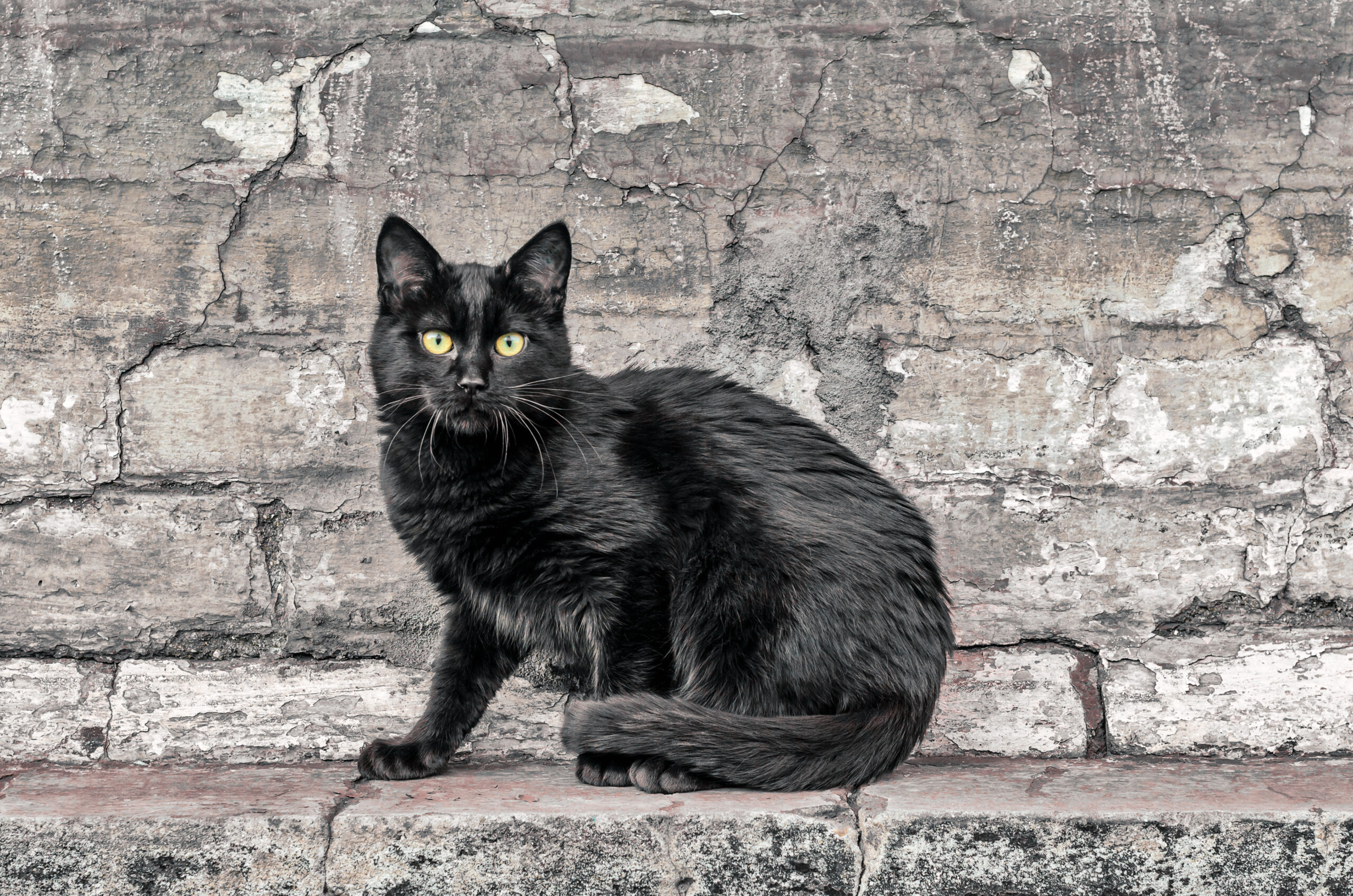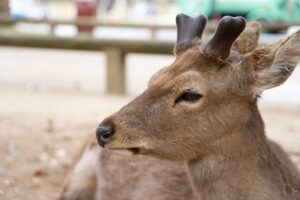In Japan, a land steeped in tradition and folklore, the black cat holds a place of particular fascination and reverence. Unlike in some cultures where they may be associated with bad luck or witchcraft, black cats in Japan are symbols of good fortune, prosperity, and protection. This unique perspective on the dark-furred felines reveals much about Japanese culture’s complex relationship with animals and superstition. From ancient myths to contemporary pop culture, black cats have maintained their status as beloved creatures capable of bringing luck and warding off evil. This article explores the multifaceted role of black cats in Japan, tracing their journey from mystical beings to cherished companions.
Unveiling the Mystery: Black Cats in Japan
The enigmatic aura of black cats in Japan is deeply entwined with the nation’s cultural and historical tapestry. In many Japanese tales, these creatures are revered as guardians against misfortune and malevolent spirits. The origin of this belief is as mysterious as the cats themselves, rooted in centuries-old folklore and superstition. Unlike Western narratives that often cast black cats as omens of bad luck, Japanese lore celebrates them as symbols of prosperity and safety. This divergence highlights the unique cultural landscape of Japan, where animals often occupy significant roles in myths and legends, shaping the societal attitudes towards them.
From Myth to Companion: The Evolution of Beliefs
The transformation of black cats from mythical entities to beloved companions in Japan is a testament to the country’s dynamic cultural evolution. Historically, these animals were esteemed for their supernatural ability to attract good fortune and repel evil spirits. Over time, as societal beliefs shifted towards a more rational understanding of the world, black cats transitioned from mystical guardians to cherished pets. This evolution mirrors broader changes in Japanese attitudes towards superstition and folklore, showcasing a harmonious blend of ancient tradition and modern reality. Today, black cats are not only valued for their mythical significance but also loved as affectionate and loyal household members.
Black Cats: Japan’s Charms of Fortune
In Japan, black cats are often associated with talismans and charms designed to bring luck and prosperity. These "lucky cats," or Maneki-neko, frequently depicted with one paw raised, are a common sight in homes and businesses across the country. While not all Maneki-neko are black, the black variants are especially prized for their strong protective powers and ability to ward off evil. Many people believe that owning a black cat or a charm in its likeness can significantly increase their fortunes, leading to widespread popularity of these symbols. This cultural phenomenon underscores the enduring belief in the supernatural powers of black cats and their role as bearers of good fortune.
Navigating the Cultural Significance of Black Cats
The cultural significance of black cats in Japan extends beyond mere superstition. It is woven into the fabric of daily life, influencing art, literature, and even holidays. Black cats are celebrated in various forms, from intricate ink paintings to whimsical animations, showcasing their enduring appeal. Moreover, there are festivals dedicated to these feline companions, where people gather to celebrate their luck-bringing attributes. This widespread admiration reflects a deep-seated respect for animals and a belief in their spiritual significance, illustrating the complex interplay between folklore and contemporary Japanese culture.
Beyond Superstition: The Positive Image in Japan
The positive image of black cats in Japan is a refreshing contrast to their portrayal in some other cultures. This favorable perception has contributed to their popularity as pets and their integration into various aspects of Japanese life. Campaigns promoting the adoption of black cats have capitalized on their auspicious reputation, encouraging people to welcome them into their homes. These efforts have not only helped improve the welfare of black cats but have also reinforced their status as symbols of luck and happiness. The affection for these animals is a clear indication of the broader societal values that prioritize harmony, protection, and the pursuit of good fortune.
The Tale of Maneki-neko: Japan’s Beckoning Cat
Perhaps the most iconic embodiment of the black cat’s revered status in Japan is the Maneki-neko, or the beckoning cat. This figurine, often found at the entrances of businesses and homes, is believed to attract good luck and fortune. The legend of the Maneki-neko dates back to the Edo period, telling of a destitute temple where a black cat brought prosperity by beckoning a feudal lord seeking shelter from a storm. In gratitude, the lord became the temple’s patron, and its fortunes vastly improved. This tale has cemented the Maneki-neko’s role as a cultural icon, symbolizing hope, prosperity, and the transformative power of kindness.
Black Cats and Their Role in Japanese Folklore
In Japanese folklore, black cats occupy a unique niche as creatures of both the earthly and the supernatural realms. They are often depicted as intelligent beings with a deep connection to the spiritual world, capable of understanding human emotions and intentions. Many stories tell of black cats thwarting evil plans or guiding lost souls to safety, highlighting their protective nature. These tales contribute to the mystique surrounding black cats, reinforcing their image as benevolent guardians. Their prominent role in folklore is a testament to the enduring fascination with these animals and their perceived abilities to bridge the seen and unseen worlds.
Celebrating Black Cats: Festivals and Traditions
In Japan, black cats are celebrated through various festivals and traditions that honor their special place in society. One such celebration is the Black Cat Appreciation Day, where people express their affection and gratitude for the luck and joy these animals bring into their lives. These festivities often feature parades, costume contests, and adoption events, showcasing the community’s love for black cats. Additionally, traditional crafts and snacks inspired by black cats are popular among festival-goers, further embedding these felines in the cultural fabric of Japan. These celebrations are a vibrant expression of the cultural significance of black cats and their role as symbols of good fortune.
How Black Cats Influence Modern Japanese Culture
The influence of black cats on modern Japanese culture is evident in their frequent appearances in media, fashion, and art. From animated films to stylish accessories, black cats are celebrated for their charm and mystique. They serve as mascots for various brands and are featured in countless works of literature and folklore-inspired media. This widespread representation reflects the deep cultural affinity for black and continues to shape their image in contemporary society. Through these portrayals, black cats remain at the forefront of Japanese pop culture, beloved by people of all ages.
The Science Behind the Luck: Debunking Myths
While the luck associated with black cats in Japan is largely rooted in superstition and folklore, there is a growing interest in understanding the science behind these beliefs. Research into animal-human interactions suggests that pets, including black cats, can have a positive impact on mental and physical health. This scientific perspective offers a rational explanation for the sense of well-being and fortune that people attribute to black cats, debunking myths while acknowledging the tangible benefits of pet ownership. This blend of superstition and science adds another layer to the cultural significance of black cats, highlighting their role as companions that bring joy and comfort to their human counterparts.
Adopting Fortune: Black Cats in Japanese Homes
The adoption of black cats in Japanese homes is seen as an act of inviting luck and happiness. Many families cherish these pets for their symbolic value and the positive energy they are believed to bring. The process of welcoming a black cat into a household is often accompanied by rituals and practices that reflect their auspicious status. This widespread domestication of black cats showcases the deep cultural appreciation for these animals and their perceived ability to enhance the quality of life. As symbols of fortune and protectors against misfortune, black cats have found a special place in the hearts and homes of many Japanese families.
From Folklore to Family: The Journey Continues
The journey of black cats from the realm of folklore to cherished family members in Japan is a narrative of transformation and enduring love. These animals, once revered for their mystical powers, have become integral to Japanese culture and society. As they move from the shadows of superstition into the light of family life, black cats continue to symbolize luck, protection, and prosperity. Their story is a testament to the evolving relationship between humans and animals, one that is rooted in respect, affection, and a shared history of belief and tradition. As the journey continues, black cats remain a beloved symbol of good fortune, weaving their magic into the fabric of everyday life.
The cultural tapestry of Japan is rich with symbols and traditions that reflect its complex history and values, and among these, the black cat stands out as a particularly enduring and beloved figure. From ancient folklore to modern pop culture, black cats have navigated the realms of myth and reality to emerge as symbols of luck, prosperity, and protection. Their journey from mystical guardians to cherished pets illustrates the dynamic interplay between tradition and modernity in Japanese society. As they continue to grace homes and businesses with their presence, black cats embody the timeless appeal of a culture that celebrates the mysterious, the auspitable, and the magical in everyday life.








